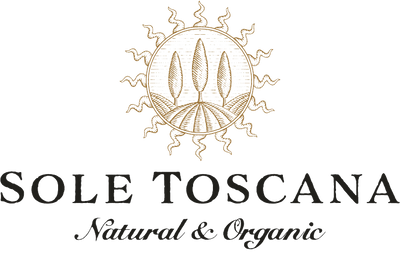These days, antioxidants are all the rage. They're famous for their potent, age-defying effects on the skin and body. But have you ever asked yourself what they are and what role they play in achieving optimal health? Let's learn more.
Antioxidants are nature's defense mechanism. They are naturally occurring compounds in various foods and plants, such as vitamin C (found in fruits) or vitamin E (found in nuts and seeds). Their primary purpose is to protect your body from environmental stressors like pollution, sun, and harmful free radicals.
Our bodies also produce antioxidants internally, though not adequately enough to neutralize the effects of free radicals. That's why it's essential to eat a diet rich in antioxidants to strengthen your natural defenses. Since your skin is the last organ to receive nutrients from your diet, applying antioxidants topically is necessary for enhancing skin health and vibrancy.
Nature has thousands of compounds that act as antioxidants. However, our spotlight today is on an exceptionally effective one called astaxanthin. It provides ultimate protection to the skin and body.
Sources of astaxanthin
Astaxanthin primarily occurs in the aquatic kingdom. Marine mammals that have this compound include salmon, red trout, krill, shrimp, crawfish, lobster, and crabs. However, the richest source of this antioxidant is Haematococcus pluvialis, microalgae that produce more than 40 grams of astaxanthin for every 1 kilogram of dry biomass.
Astaxanthin gives salmon and crustacean species their vibrant pink color since they feed upon astaxanthin-rich food. Manufacturers add this compound to fish food to enrich the coloring of the fish.
Astaxanthin for the body
Health professionals consider astaxanthin as the most potent antioxidant found in nature. It provides benefits for our heart, brain, eye, and skeletal health.
EYE HEALTH
Taking astaxanthin supplements can improve certain eye conditions like glaucoma, retinitis, ARMD (age-related macular degeneration), iritis, keratitis, and others.
HEART HEALTH
Studies show an increase in the "good" (HDL) cholesterol by 15 percent and a reduction of triglycerides by up to 25 percent in patients that took 12 mg of astaxanthin daily for several weeks. In a separate human study, volunteers took 6 mg of astaxanthin daily for ten days. They showed an improvement in blood flow, which has a positive effect on cardiovascular health.
JOINT AND SKELETAL HEALTH
Some athletes admit to noticing significant benefits when they supplement with astaxanthin to increase their endurance. In a Japanese study, scientists reported decreased muscle inflammation in rats by more than 50 percent.
BRAIN AND COGNITIVE HEALTH
Scientists consider this antioxidant as potent brain food. They even assert that it could hinder neurodegenerative diseases like Alzheimer's or dementia.

Astaxanthin for skin
Astaxanthin essentially provides the same benefits when taken orally as when it's applied topically. It offers protection against harmful elements that could deteriorate the skin's integrity over time.
Research shows that astaxanthin is 54 times more powerful than beta-carotene, 65 times more than vitamin C, and 14 times more than vitamin E. What an excellent solution for delaying the formation of fine lines and wrinkles!
A 2002 Japanese study showed that women around the age of 40 who took 2 mg of astaxanthin daily for four weeks showed significant skin improvement. They had reduced appearance of brown spots and uneven skin tone, enhanced skin suppleness and firmness, and an increase in overall skin moisture and hydration.
Why don't you try including this ingredient in your skincare routine? Your skin will thank you.
With love,
The Sole Toscana Beauty Team


